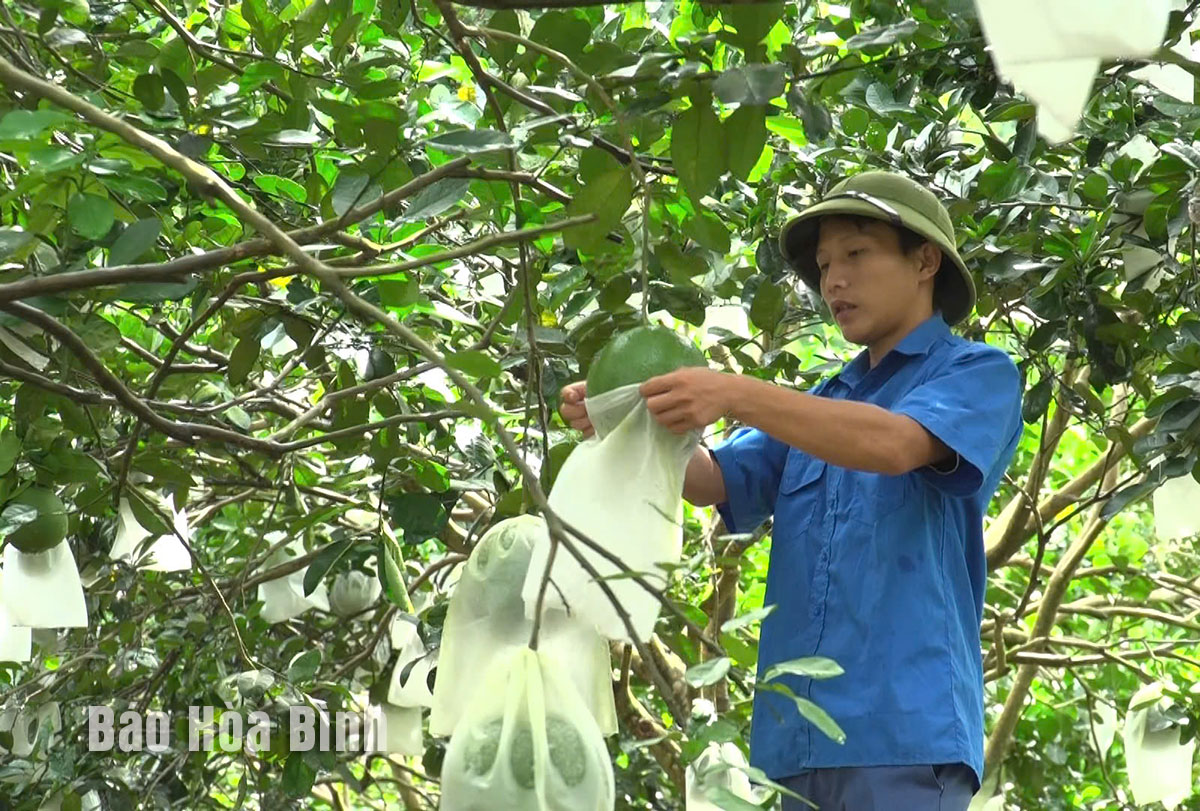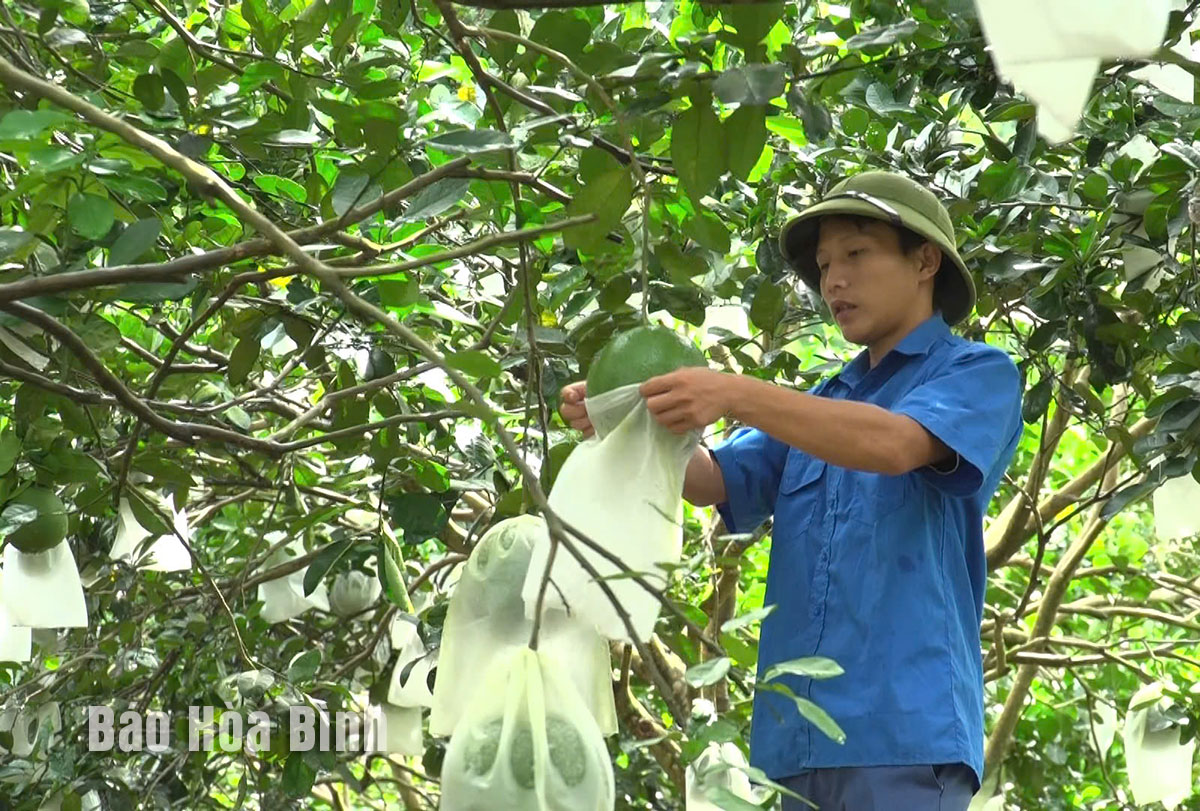



Mr. Nguyen Quang Huy from Nghi 2 hamlet, Ngọc Lương commune is wrapping pomelos (Yen Thuy) to protect them from sunburn, pests, and acid rain.
With a spirit of innovation and determination, in 2012, Mr. Nguyen Quang Huy recognized that pomelo was a common tree in the area with high market value. He took the advantage of his family's unused land and invested in planting 200 green-skinned pomelo trees. The land and climate were suitable, and after more than two years, the pomelo garden began to bear fruit. The pomelos were especially well-received in the market due to their delicious flavor, large size, and juiciness.
Being proactive and eager to learn, Huy diligently applied scientific and technical knowledge to production. As a result, the green-skinned pomelo garden has been growing well and providing a stable harvest for many years. On average, the garden yields 5-6 tons of fruit annually, and in good seasons with the favorable weather, the yield can reach 7-8 tons. Currently, green skin pomelos are purchased by traders at around 25-30 thousand VND per kilogram. With high productivity and profitability, Mr. Huy has continued to enhance his income by grafting 150 more Dien pomelo trees and 80 orange trees into his garden. Thanks to relatively stable prices, the garden generates an annual revenue of about 150 to over 200 million VND.
To ensure the pomelo trees grow well, Mr. Huy actively learns from books, newspapers, and other pomelo cultivation models inside and outside the district. He says: "To harvest delicious green skin pomelos, you first need to choose quality seedlings that are suitable for the local soil and climate. Every year, after harvesting, you must continue to fertilize the trees, improve the soil, and water to retain moisture, and prune the branches. It is necessary to regularly inspect the trees and fruit to detect pests early and handle them promptly to prevent spreading. Additionally, to build the brand of the local pomelos, applying e-commerce in the product promotion and sales is also very important”.
Currently, green-skinned pomelos are widely grown by the people in Ngọc Lương commune and they are considered a key crop for the economic development. However, in recent years, the challenges for pomelo growers in the commune and Yen Thuy District, in general, have been increasing, especially due to the climate change. Heavy rains and flooding can easily lead to the fungal diseases and increase the risk of tree death. The lack of electricity during the summer also causes the significant inconvenience for the people, as they cannot operate the automatic watering systems and must water manually. Faced with these difficulties, Mr. Huy and other pomelo growers in the area have proactively changed their tree care methods to adapt, improve product quality, increase market competitiveness, and ensure the stable income.
Ms. Bui Thi Lan Phuong, the Secretary of Ngọc Lương Commune's Youth Communist Union, says: "Not only has he developed his family's economy, but Mr. Huy has also actively participated in the social activities organized by the local government, especially the Youth Communist Union. He is always ready to help and share difficulties with others, making him a role model for the young people in the commune to follow. Through the youth's economic models, the new agricultural development directions have been opened up, bringing high economic efficiency and making the dream of getting rich in one's homeland a reality”.